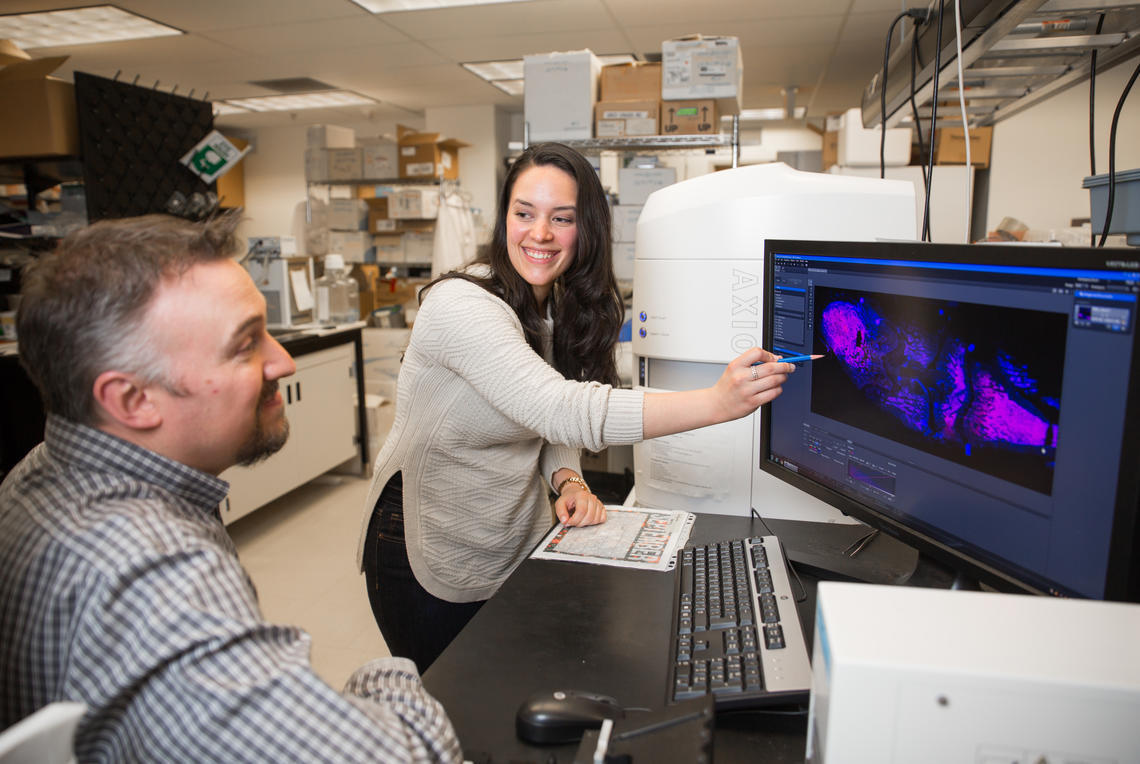Endogenous Repair of Cartilage
Activating stem cells in the joint to repair cartilage and manage osteoarthritis

Model of an osteoarthritic knee joint
Osteoarthritis (OA), the degeneration of cartilage in a joint, is a painful and debilitating disease with no cure or treatment to stop or reverse its progression. People with OA are often left with no choice but to replace the whole joint as the cartilage cannot be repaired. BME researchers are studying how to induce the body’s own resident stem cells to repair the cartilage and avoid joint replacement surgery.
Cartilage itself doesn’t have stem cells and therefore lacks the ability to self-repair, but there are stem cells in the connective tissue (synovial membrane) around many joints. These endogenous stem cells have shown to have increased potential to repair cartilage compared to stem cells from bone marrow or fat. This research is focused on activating these stem cells in the joint and determining whether they can help repair the cartilage and reverse the effects of OA.

Dr. Paul Salo, Anand Masson (PhD student), Dr. Roman Krawetz and Dr. Brent Edwards (left to right)

Histological fluorescence image of a knee joint
Dr. Roman Krawetz (Lead)
Partners
Dr. Michael Underhill, Professor, Faculty of Medicine, University of British Columbia

